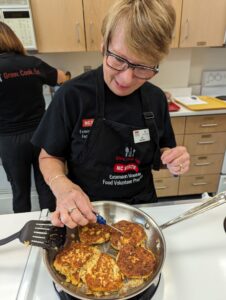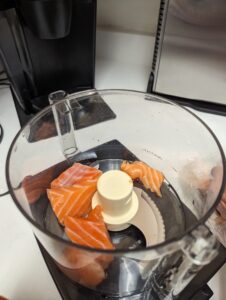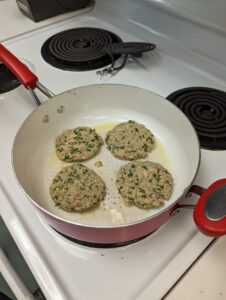Med Instead of Meds
go.ncsu.edu/readext?1016947
en Español / em Português
El inglés es el idioma de control de esta página. En la medida en que haya algún conflicto entre la traducción al inglés y la traducción, el inglés prevalece.
Al hacer clic en el enlace de traducción se activa un servicio de traducción gratuito para convertir la página al español. Al igual que con cualquier traducción por Internet, la conversión no es sensible al contexto y puede que no traduzca el texto en su significado original. NC State Extension no garantiza la exactitud del texto traducido. Por favor, tenga en cuenta que algunas aplicaciones y/o servicios pueden no funcionar como se espera cuando se traducen.
Português
Inglês é o idioma de controle desta página. Na medida que haja algum conflito entre o texto original em Inglês e a tradução, o Inglês prevalece.
Ao clicar no link de tradução, um serviço gratuito de tradução será ativado para converter a página para o Português. Como em qualquer tradução pela internet, a conversão não é sensivel ao contexto e pode não ocorrer a tradução para o significado orginal. O serviço de Extensão da Carolina do Norte (NC State Extension) não garante a exatidão do texto traduzido. Por favor, observe que algumas funções ou serviços podem não funcionar como esperado após a tradução.
English
English is the controlling language of this page. To the extent there is any conflict between the English text and the translation, English controls.
Clicking on the translation link activates a free translation service to convert the page to Spanish. As with any Internet translation, the conversion is not context-sensitive and may not translate the text to its original meaning. NC State Extension does not guarantee the accuracy of the translated text. Please note that some applications and/or services may not function as expected when translated.
Collapse ▲I’ve recently written about how nutrition can affect our long-term cognitive brain
health. One of the recommended patterns of eating to achieve this is the Mediterranean diet. This diet is typical of people who live in the Mediterranean area.
I hate to use the word “diet” with this because it isn’t something you “go on” and then
it’s over when you meet a goal. This is a long-term way of eating.
In addition to protecting against cognitive decline the Mediterranean diet has been
shown to:
- Decrease the risk of some forms of cancer.
- Be more effective than a low-fat diet for weight loss in overweight and obese
individuals. - Improve eye health including decreasing the risk of macular degeneration.
- Decrease the risk of type 2 diabetes.
- Help manage blood pressure.
- Reduce the risk of cardiovascular disease (CVD) as much as 30-60%
The basic nutrition concepts of the Mediterranean diet include: low fat proteins, adding more beans and nuts to your meals, reducing saturated fats, choosing more olive oil, more fruits and vegetables and increasing whole grain consumption. Along with limiting sugar intake and reducing the number of processed foods you eat.
Changing the protein in your diet is one of the most impactful ways you can improve
your diet. Eating more fish and seafood is one of the major ways you can do this. People following the Mediterranean diet eat at least eight-ounces of fish or seafood a week. At least one of these servings should be of a high fat fish such as salmon, mackerel, anchovies, sardines or herring.
A group of nutrition and health professions from NC State University and NC Division of Public Health created a wonderful class, website and beautiful recipes that focus on the Mediterranean diet. They call it “Med Instead of Meds” because people that follow this way of eating—they call it the “Med Way”—may be able to reduce the medications they are currently taking.
If you’d like to learn more about the “Med Way”, our N.C. Cooperative Extension here in Brunswick County is offering “Med Instead of Med” classes. This series of four classes will be held at the Harper Library in Southport on Fridays August 9, 16, 23 and 30 from 10:30 a.m. till noon. These classes are free of charge and you can sign up at the library. Each week will focus on a different aspect of the Mediterranean diet and will include a food demonstration. There will be additional classes on Oak Island in September and November.

Extension Master Food Volunteer Lori Van Horn testing the temperature of the salmon patties. They should reach 155 degrees F.
In preparation for these classes our Extension Master Food Volunteers (EMFVs) got into the kitchen at the Extension office to test some of the “Med Instead of Med” recipes. They were especially interested in fish recipes. Here’s a simple Salmon Burger recipe that got positive reviews.
Salmon Burgers
- 1 pound of salmon, skin and bones removed
- 1 tablespoon grated fresh ginger (more if you really like ginger)
- ½ tablespoon low-sodium soy sauce
- ½ tablespoon Sriracha (or other hot sauce, adapt this for your heat preference)
- 2 – 4 tablespoons chopped green onions
- A few grinds of fresh black pepper
- 1 egg
- ½ cup whole-wheat panko bread crumbs
- Grapeseed, canola, or other vegetable oil for cooking the burgers
Directions
Process salmon, ginger, soy sauce, Sriracha, green onions, and pepper in a food
processor until well blended.  Place the salmon mixture in a bowl. Stir in the egg and
Place the salmon mixture in a bowl. Stir in the egg and
panko. Make 4 patties from the mixture. Refrigerate for an hour or so (optional).
Lightly oil a non-stick skillet. Cook on medium heat for 5 minutes. Flip and cook the
other side. Test internal temperature to 155 degrees F.
Serve on a bun with Sriracha mayonnaise (½ Sriracha and ½ mayo), or you
can serve it on a bed of kale slaw. Makes 4 burgers, 239 calories and 28 grams of
protein each.

Extension Master Food Volunteer Terry Amrhein from Sunset Beach preparing the salmon burgers in the Extension Demonstration kitchen.
For more recipes and details on the Mediterranean diet visit the website.
Syracuse is a Family and Consumer Science team member and can be reached at N.C. Cooperative Extension, Brunswick County Center 910-253-2610 or by email at
clsyracu@ncsu.edu



